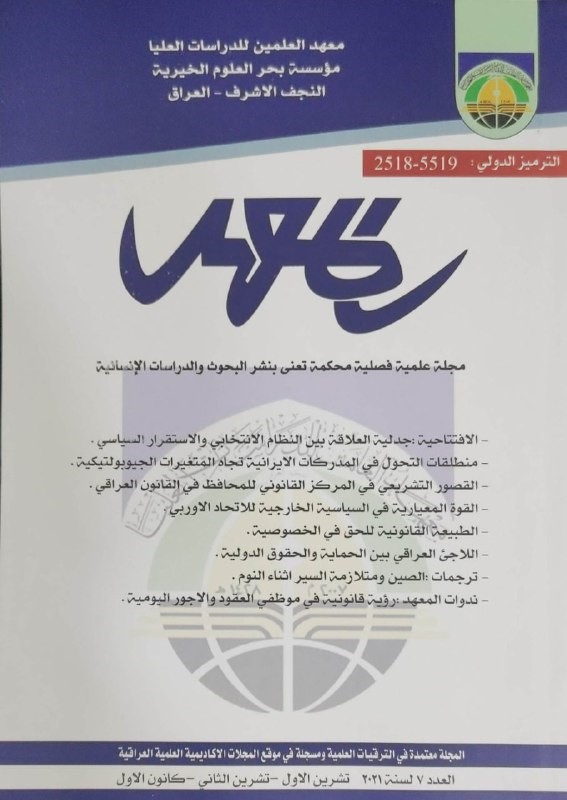المعالجة التشريعية لطرق الطعن في الأحكام الجزائية في القانون العراقي الاعتراض على الحكم الغيابي انموذجا
DOI:
https://doi.org/10.61353/ma.0070433Keywords:
التشريع, الطعن, المعالجة, الحكم الغيابيAbstract
The methods of appealing penal judgments are a legal means granted by the Iraqi legislator to the parties to the criminal case, aiming to re-submit the case to the judiciary with the aim of estimating the value of the judgment in itself and then canceling or amending this judgment. Discriminatory interference is one of the essential legal guarantees that the Iraqi legislator has been keen on in the Code of Criminal Procedure, so that an innocent person is not convicted or a criminal is drawn from punishment on the one hand, and that human justice is not absolute and the penal judgment may be issued with injustice or error on the one hand. On the other hand, the reason for the methods of appealing judgments is the same, which is the possibility that the judge, as a human being, will make a mistake in applying the law, and from here it was necessary to correct this error, so that each party appealing before it corrects or amends this wrong, minor or defective application of the provisions of the law. For this reason, it was fair that there should be a higher judicial body whose job it is to monitor the extent to which the judgments issued by the criminal courts comply with the text of the law or its distinction
Downloads
Published
Issue
Section
License

This work is licensed under a Creative Commons Attribution-NonCommercial-NoDerivatives 4.0 International License.







